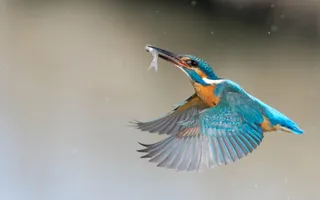Collecting the debris
The wood, which collects in the fish pass when the river floods, was used as firewood for the event's stone circle which stays alight across the five days.
We worked with Greg Klaes, chair of the Banbury Canal Partnership and a long-term visitor to Glastonbury, to collect the wood and transport it to Somerset, enabling it to be used at the festival and making a £3,500 saving on disposal costs for us.
Contractors spent a week collecting the debris from the fish pass at Bevere, which was opened in 2020 by us as part of the Unlocking the Severn partnership with Severn Rivers Trust, the Environment Agency and Natural England, to allow fish free passage past the nearby weir for the first time in 170 years.
The pass, just north of Worcester, is a 100-metre channel for fish such as the twaite shad, salmon, lamprey and eels to travel up the river.
Putting the wood into good use
Rob Labus, our contract manager, explained: "Wood collects on the fish pass every time the River Severn floods. This debris needs to be removed to stop it from causing any blockages.
"It's fantastic that this year the wood has been put to good use at Glastonbury and that we as a Trust were able to play a small part in such a huge event.
"We are grateful to Greg Klaes for his assistance because, as well as benefiting the festival, it represents a good costing saving for the Trust, so we can do more to preserve the region's ecologically important waterways. I'd also like to thank our construction and operations teams in the West Midlands for their support in making this happen."
Glastonbury Festival has been in existence for over half a century and has developed into one of the biggest music and contemporary art festivals in the world, attracting crowds of around 200,000 people every year.





